The Natural Right to Freedom
Abbreviations: FT = First Treatise ST = Second Treatise
This natural right to freedom is not an unlimited Hobbesian liberty to do whatever one desires to do. For such a liberty in others would mean that one was open to utter subjection to them, and “
who could be free, when every other Man’s Humour might domineer over him?” (
ST 57). Instead, each individual’s natural right to freedom implies a natural obligation on the part of others to refrain from interference with that individual’s pursuit of his temporal and eternal happiness. Each person’s right to freedom is constrained by others’ like rights to freedom.
How can the extent of each person’s rightful freedom be codified so that no person’s exercise of his right to freedom will be incompatible with any other person’s exercise of his right to freedom? Locke saw that this codification requires the specification of what is
mine and what is
thine. My rightful freedom consists in my disposing as I see fit of what is
mine (or at least
not thine) “
without asking leave, or depending upon the Will of any other Man” (
ST 4). Your freedom requires that I not dispose of what is
thine without your leave. A regime of compatible freedom depends on the identification of the fences that mark off mine from thine. Thus, for Locke, rights characteristically take the form of property. Property in its broad sense, i.e., rights to life, liberty, and estate, provide each individual with moral protection against subordination to other individuals
and to the state. And property, especially in the sense of estate, provides the framework that allows and facilitates a peaceful and flourishing civil order. Locke’s theory of rights to one’s legitimately acquired holdings is an integral part of his more general view that each individual is morally entitled to pursue his own ends in his own chosen way. Religious freedom is, for instance, primarily a matter of the freedom of individuals in their religious practices to dispose of their own holdings (but not the holdings of others) as they see fit.
In the work that has done most in recent decades to revive interest in Locke’s political philosophy,
Anarchy, State and Utopia(1974)
[2], Robert Nozick defends an essentially Lockean position on justice in holdings on the basis of a doctrine of natural rights. Moreover, like Locke, Nozick takes each person’s basic rights to be reflective of morally significant features of persons, viz., their existence as separate beings with distinct systems of ends. For both thinkers, in virtue of these morally significant features, individuals are not to be treated as objects or resources or means at the disposal of others; they are not to be subordinated to or sacrificed for others’ ends. As long as an agent abides by this basic constraint, all others are required to allow him to pursue his own ends in his own chosen way. This is a very different sort of moral perspective from the consequentialist contention that there is some overarching social outcome--e.g., the maximization of the preservation of human life--that each person is bound to promote and that persons should be constrained in their conduct toward one another insofar and
only insofar as constraint advances that maximization project. While Locke sometimes speaks as though our fundamental duty is to preserve mankind at large (at least when that is compatible with one’s own self-preservation), he immediately parses this duty as a negative obligation not to “
take away, or impair the life, or what tends to the Preservation of the Life, the Liberty, Health, Limb or Goods of another.” (
ST 6).
[3]
The Rights of Property
Let us turn to Locke’s vindication of the rights of property in the sense of estate. In the crucial chapter “
Of Property ,” as throughout the
Second Treatise, Locke is writing in opposition to the authoritarian political theorists
Robert Filmer and
Thomas Hobbes . Despite their differences, both Filmer and Hobbes held that all property rights of citizens depend on the will of their sovereign and that, therefore, there can be no valid assertion of property rights against the will of the sovereign. Locke argues to the contrary that property rights do not depend on the will of the sovereign; indeed, no one can be said to have a
property in any holding if another party, e.g., the sovereign, may deprive him of it without his consent (
ST 138). In the 17th century the standard alternative to the view that property rights were created by the sovereign’s will was the view that the earth was originally owned by all mankind in common
and that it came to be divided into private property (or came to be open to private acquisition) through some sort of general consent. Filmer, however, provided powerful arguments against any such consent theory of private property rights, and Locke was convinced by these arguments. For this reason, Locke sets out “
to shew, how Men might come to have a property in several parts of that which God gave to Mankind in common, and that without any express Compact of all the Commoners” (
ST 25).
Locke himself continues to say that God had given the earth “
to Mankind in common ” because this was his most direct way of denying Filmer’s claim that God had given the earth to Adam. Yet Locke sees that this language seems to imply that private property can only arise through general consent. Locke’s solution was to argue that all that
should be meant by saying that the earth was originally the common property of mankind is that no portion of the earth was the original property of anyone in particular (
ST 26).
In effect, the earth is originally
unowned. Hence, individuals may take hold of and use portions of the natural world without having to obtain the consent of others. Locke argues that the earth must be originally unowned precisely because, if the earth
were originally commonly owned in any substantive sense, universal consent
would be needed before any individual could permissibly take up and use any portion of the earth. But then, since universal consent will never be attained, morality would require that everyone abstain from all uses and appropriations of natural materials. Morality would require that we all starve in the midst of a plentiful nature. “
If such a consent as that was necessary, Man had starved, notwithstanding the Plenty God had given him” (
ST 28). Locke concludes that, since morality
could not require that we all starve, it cannot be that the earth is originally jointly owned by mankind.
Still, why not think that man is obligated to starve if he cannot get universal consent to engage in the private use or appropriation of parts of nature? Locke addresses this question in his little-read
First Treatise. His answer is cast largely in terms of God’s intentions. God would not have created men with a need to use and appropriate portions of nature and surrounded men with a plentiful nature if He did not intend for men to use and appropriate parts of it (
FT 86,
ST 32-35). However, there is also a less theological version of this answer.
[4] Each person’s rational pursuit of (temporal) happiness centers on his desire for and rational pursuit of self-preservation; indeed, all persons rationally seek “
the comfortable preservation of their Beings” (
FT 87). For this reason, all persons have rights to pursue their comfortable preservation and, since the use or appropriation of portions of nature is necessary for the pursuit of comfortable preservation, all persons have rights to engage in such use or appropriation. Hence, people cannot be subject to natural obligations to forgo such life enhancing activities (
FT 86-88).
We have here an inkling of an idea often found in classical-liberal thought, viz., that there is a
natural right of property. This is not a right to particular natural objects or shares of such objects. For rights to particular objects or shares must be
acquired through the right-holder’s actions. Rather, the natural right of property is a right to make things one’s own. It is a right not to be precluded from acquiring holdings and exercising discretionary control over them. Imagine a political order that prohibits people from engaging in activities that would generate private property rights. By definition,
that prohibition would not violate any individual’s
acquired property rights. Yet that prohibition would violate persons’ natural right of property. Locke recognizes the distinction between this background natural right of property and particular acquired property rights by noting in his
First Treatise discussion of the natural right that “
in another place a Property in any particular thing” he will show how a person creates for himself “” (
FT 87). That other place is the
Second Treatise’s chapter “Of Property,” where Locke offers his famous labor-mixing account of particular property rights.
"every Man has a Property in his own Person. This no Body has any Right to but himself. The Labour of his Body, and the Work of his Hands, we may say, are properly his"
Locke begins that account with the affirmation of each person’s natural right of self-proprietorship and, hence, each person’s right to his own labor. “
Every Man has a Property in his own Person. This no Body has any Right to but himself. The Labour of his Body, and the Work of his Hands, we may say, are properly his” (
ST 27). Since nature itself is originally unowned, any individual may “
mix ” his labor with any portion of nature that is not being used or has not already been acquired by another. This mixing of labor involves the intentional transformation of some natural material for the sake of some future use by the transforming agent. Hence the labor is plausibly construed as invested in the transformed object rather than merely frittered away,
[5] and the laborer retains his right to this invested labor. Since depriving the laborer of the transformed object violates that agent’s rights, the agent who “mixes” his labor with some morally available natural material acquires a right to the altered object. The primary reason to respect the agent’s freedom to dispose of the transformed object as he chooses is regard for that agent’s rights, not regard for the overall social benefits of allowing the agent to enjoy this freedom.
"Mixing One's Labor"
A number of points should be made about Locke’s labor-mixing account. First, as far as it goes, it is eminently plausible. If persons do have rights over their own persons and hence over their respective talents, efforts, and time, then they have moral claims against being deprived of objects in which they have invested their talents, efforts, and time. The wrong done to the agent whose invested labor is expropriated by another is morally on par with the wrong done to an agent who is coerced into supplying labor to another.
Second, it is far from obvious that all rights of initial acquisition can or need to be explained on the basis labor-mixing. As various conventions develop that define what counts as an entitlement-generating initial acquisition, it seems that individuals can acquire initial entitlements by engaging in the activities specified by those conventions. Since those conventions enable people to make things their own, respect for the entitlements generated through those conventions seems to be required by the Lockean natural right of property.
Third, Locke provides no account of property rights that arise through voluntary transfer. Here too it seems that, rather than trying to fit all acquisitions of property rights into the labor-mixing paradigm, Locke would have done well to emphasize how conventions that define just transfer facilitate people making things their own and hence each person’s natural right of property underwrites his claim to the holdings he has acquired in accordance with those conventions. The recognition of a Lockean natural right of making things one’s own opens the door to a doctrine of property rights that is less centered on labor-mixing than Locke’s actual discussion is.
"Nor was this appropriation of any parcel of land, by improving it, any prejudice to any other man, since there was still enough, and as good left; and more than the yet unprovided could use."
Locke denies that it follows from his doctrine of just acquisition that “
any one may ingross as much as he will” (
ST 31). For Locke affirms two constraints on just acquisition, viz., a spoilage proviso and an “
enough, and as good ” proviso (
ST 33). The spoilage proviso is tied to Locke's vision of the natural world having been provided to us by God who intends its use not its waste. According to this proviso, one’s property rights do not extend to what will spoil in one’s possession. If a third bushel of berries will just rot in my possession, I cannot claim just ownership of them even if I have labored to collect them. However, Locke provides two reasons for why the spoilage proviso has vanishingly little significance. The first is that before the existence of money no sensible person will gather more than he can consume or barter for some other perishable good. The second is that once money comes into existence, perishable holdings can be converted
without limit into nonperishable holdings (
ST 46).
"Enough and as Good"
The “enough and as good” proviso is more significant both in theory and practice. According to this proviso, individuals may not so extensively appropriate from nature that others are left without enough and as good to use for their own purposes. Many recent authors think that this proviso signals Locke’s commitment to economic egalitarianism.
[6] This is mistaken. To begin with, this proviso does not require that an individual be left with an
equal share of the earth; it only requires that he be left with “
enough.” Moreover, “as good” is best read as requiring that each individual be left with “as good” a portion as would have been available to him had others not privately appropriated portions of the earth. The proviso cannot plausibly be read as imposing the crazy restriction that each individual be left “as good” a portion as has already be acquired by other individuals. That restriction would require that
no one ever acquire the best portion – because that would leave not as good for others! As Nozick suggests, (
ASU 174-82), the “enough and as good” proviso should not be understood as a demand for the equal division of the earth but rather as a demand that
in some sense no one be made worse off by the initiation, expansion, and elaboration of private property. On Nozick’s version of this proviso, no individual is to be made worse off along the dimension of
utility. An individual has no just complaint if the operation of the overall system of private property does not impose a net utility loss on him or if he receives an appropriate utility-restoring compensation.
In contrast to Nozick, Locke is more consistently focused on
freedom. His advocacy of the “enough and as good” proviso marks Locke’s concern that the institution and deployment of private property may “
straiten ” (
ST 36) some individuals, i.e., may fence them in (or out) in a morally impermissible way. What matters for Locke is not a baseline of utility that an individual would enjoy in a world that was still an open commons. Instead, what matters is a baseline of noninterference with that individual’s employing his self-owned labor in pursuit of his comfortable preservation. The proviso is satisfied if and only if the institution, development, and elaboration of private property yields an economic environment that is at least as receptive to that individual’s deploying his talents, efforts, and time in pursuit of his comfortable preservation as the pre-property environment would have been. It is not too far off the mark to say that Locke is concerned with no one being worse off with respect to economic opportunity rather than with respect to utility per se.
Locke divides the institution, expansion, and elaboration of a regime of private property into two phases and argues that within each phase economic opportunity will on net expand for all – or nearly all – individuals. The first phase, which exists before the introduction of money, begins with mankind’s transition from a hunter-gatherer to an agricultural existence. For Locke this corresponds to a transition from the land being treated as an open commons to its being divided via individual investments of labor into private holdings. How much land will a given head of family acquire in the transition from hunter-gathering to farming? Locke’s answer is that: (1) a given rational agent will acquire no more land than is necessary to produce the goods that he or his family needs for consumption or can barter for needed consumption goods and (2) this amount of land will be very much less than the land that he or his family has needed for sustenance as hunter-gatherers. The reason so much less land will be needed is that labor, understood broadly as industrious activity, is the primary factor for all valuable human goods and labor will be vastly more effectively or intensively used in private agricultural endeavors than in hunter-gatherer meanderings. Thus as any head of family turns to agriculture and makes some portion of the earth his own, the amount of land he employs radically diminishes, and on net the amount of land available to others increases – whether they remain hunter-gatherers or turn to agriculture (ST 37). Notice that since economic gain accrues to people almost entirely on the basis of their industrious labor, one party’s economic gain in no way implies another party’s loss.
The Creation of Money
"gold, silver and diamonds, are things that fancy or agreement hath put the value on, more than real use, and the necessary support of life"
The second phase of the development of private property begins with the creation of money by way of “
fancy or agreement” (
ST 46). Money radically expands the scope of feasible exchange (
ST 48) and enables people to store the greater available gains from production and trade. The prospect of these storable gains greatly encourages the more extensive development and deployment of industrious labor (
ST 49). On the other hand, this prospect motivates individuals to invest in much more extensive holdings of natural materials than they sought to labor on before the introduction of money. The success of some people in this pursuit
will preclude others from appropriating or perhaps even using enough and as good of the earth. More generally, in the monetary phase the economic inequality that is rooted in “
the different degrees of industry ” (
ST 48) among men will become substantially more pronounced. So it looks as though the development of commercial society that is triggered by the introduction of money regularly violates the “enough and as good” proviso. Yet Locke maintains that this proviso will not – or will not often – be violated.
Locke’s official argument for this conclusion depends on his claim that money arises through universal (albeit tacit) consent to gold and silver having economic value. Since it is obvious that once money exists, economic inequality will be more pronounced and some people will expand their holdings of the earth to the exclusion of others, consent to the existence of money must also be construed as consent to these outcomes. “
It is plain that Men have agreed to a disproportionate and unequal Possession of the Earth” (
ST 50). Hence, this argument runs, the proviso is not
violated after the introduction of money because in the course of that introduction everyone has agreed to that proviso’s suspension. Similarly, no one can justly complain about increased economic inequality because everyone has consented to this inequality as part of their agreeing to the establishment of money.
The problem here is not merely that there has been no such universal consent to money or inequality, but also that Locke himself has wisely disavowed any appeal to universal consent within his justification of property rights. Can Locke escape these problems?
"A King in a large and fruitful Territory [without private property and money] feeds, lodges, and is clad worse than a day Labourer in England."
It looks like Locke can escape by focusing on the reason that individuals would have to consent to the introduction of money. For Locke, that reason must be that each party anticipates gaining in the course of the transition from the first phase to the second phase of the private property regime. “
For no rational Creature can be supposed to change his condition with an intention to be worse” (
ST 131). Why, according to Locke, would it be rational for each individual to agree to a transformation of human society that increases economic inequality and may leave that individual unable to appropriate (or even use) raw material? Locke’s answer is that the industrious powers that such a transformation promotes and releases so increases wealth and opportunity that each individual can reasonably anticipate that he will gain from this transition even if he ends up with a smaller pro rata share. According to Locke, such gains can be expected if, but only if, a “
wise and godlike” ruler establishes “laws of liberty to secure protection and encouragement to the honest industry of Mankind” (
ST 42). Indeed, because of the enormous improvement generated by human labor in commercial societies, “
a King in a large and fruitful Territory [without private property and money] feeds, lodges, and is clad worse than a day Labourer in England.” (
ST 41).
[7] For the achievement of material prosperity, “
numbers of men [living under laws of liberty] are to be preferred to largenesse of dominions” (ST 42).
How do these claims about the bountifulness of commercial society indicate that such a society generally satisfies the “enough and as good” proviso? Understood narrowly, the proviso is not satisfied. For it will not be uncommon for an individual to find himself precluded from using as enough and as good
raw material as he would be able to use were the earth still an open (and hence undeveloped) commons. But understood more broadly, the proviso is generally satisfied. For all – or nearly all – individuals within commercial society will encounter a world of economic options that will be
at least as receptive to their bringing their self-owned powers to bear in pursuit of their ends as they would encounter were the earth still an open commons.
[8] Within commercial society, no individual – or almost no individual – will be “straitened” in his life-enhancing economic activities compared to the open-commons alternative. And the real point of the proviso is to rule out this sort of straitening of people. Note that the proviso understood broadly will be satisfied precisely because economic opportunity depends fundamentally on the positive-sum process of encouraging the development and exercise of industrious labor rather than the zero-sum process of fighting over given raw material. It is the vast expansion of industrious labor and opportunity that private property and expanded trade calls forth which also explains why commercial society enhances the material well-being of everyone – or nearly everyone.
"though the things of nature are given in common, yet man, by being master of himself, and proprietor of his own person, and the actions or labour of it, had still in himself the great foundation of property"
Locke tells us that labor is “
the great Foundation of Property” (
ST 44). He means this in two distinct senses. First, the investment of labor is the source of initial property
rights. Second, the investment of labor is the primary source of the
value of rightfully held objects. And, of course, it is the creation, protection, and exercise of those rights that engender that value. Locke’s emphasis on the extent to which economic value arises through labor often leads to the claim that Locke subscribed to the labor theory of economic value, i.e., the view that the exchange value of any item will (or will strongly tend to) be proportionate to the amount of labor that goes into the production of that item. However, this theory is tied to the idea that labor is in the final analysis one homogenous activity and that different amounts of this homogenous activity get poured into different objects that then have exchange value in proportion to the amount poured into them. There is no basis for thinking that Locke subscribed to this notion of labor or to the idea that the exchange value of any object is proportionate to the labor involved in producing it. Indeed, he tells us that the value of gold and silver depends on fancy and agreement and that the value of land depends on scarcity (
ST 45).
Essay on the Poor Law (1697)
Although Locke asserts quite generally the satisfaction of the “enough and as good” proviso in commercial society, I have represented Locke as holding that the proviso is satisfied for all –
or almost all – individuals, for it is difficult to imagine a philosophical
proof that at all times and in all places the development of private property and free commerce straitens nobody. Moreover, in his 1697 “
An Essay on the Poor Law,”
[9] Locke seems to view at least some of the poor as people who have been deprived of the opportunity to work, i.e., who are worse off with regard to economic opportunity than they would have been were they still living in an open commons.
[10] His proposed remedies are various measures to provide these impoverished individuals with employment opportunities – on merchant ships, in workhouses, and so on. And these are the sort of measures that are called for by the “enough and as good” proviso insofar as people’s worsened positions are really the result of the development and exercise of private property rights.
"The true and proper relief of the poor… consists in finding work for them, and taking care they do not live like drones upon the labour of others."
However, in his Poor Law essay Locke does not merely recommend that the impoverished be
offered employment. Rather, Locke proposes that the poor be
forced to accept the employment opportunities offered. Within this essay at least, it is a settled point for Locke that the poor are to be maintained. “Everyone must have meat, drink, clothing, and firing. So much goes out of the stock of the kingdom, whether they work or no.”
[11] However, the nation cannot afford to provide these necessities unless, through their labor, the poor bear the burden of their own maintenance as much as possible. “[T]he true and proper relief of the poor … consists in finding work for them, and taking care they do not live like drones upon the labour of others.”
[12] It is easy here to accuse Locke of forgetting about the self-ownership right of the poor to refuse offered employment and of focusing instead on the policy of maintaining “the stock of the kingdom.” Still, factors other than mere disregard for liberty are at work. Locke’s hard-work ethos makes him unsympathetic to and suspicious of “idle vagabonds.” He almost certainly sees any vagabond’s rejection of offered employment as manifesting not so much a desire for liberty but, rather, a desire to live at the expense of others.
Nevertheless, it is hard to avoid the conclusion that when Locke shifts from high philosophy to public policy – especially public policy concerning the less reputable members of society – liberty and property tend to get lost in the shuffle. When the poor escape from “negligent officers,” the untoward result is that they “are at liberty for a new ramble.”
[13] “Restraint of the debauchery” of the poor is a necessary step “towards setting the poor on work.” Despite Locke’s core devotion to property rights and despite the strong anti-paternalism and anti-moralism of his
A Letter Concerning Toleration, in the “Essay on the Poor Law” Locke calls for “the suppressing of superfluous brandy shops and unnecessary alehouses, especially in country parishes not lying upon great roads.”
[14] However, liberty and property are not compromised along the great roads that Locke travels.
Endnotes
[1] Citations from the
Second Treatise (and the
First Treatise) will be to paragraph numbers in Locke’s
Two Treatises of Government, 2nd edition, Peter Laslett, ed. (Cambridge: Cambridge University Press, 1967). [The links are to one of our online editions, the Thomas Hollis edition of 1764. The link will take you to the paragraph in which the quotation is located - Editor].
[2] Robert Nozick,
Anarchy, State and Utopia (New York: Basic Books, 1974).
[3] The most sophisticated reading of Locke as a consequentialist is offered by A. John Simmons in
The Lockean Theory of Rights. According to Simmons’ rule-consequentialist account, Lockean rights are norms general compliance with which maximizes the human preservation. I examine consequentialist sounding passages from the
Second Treatise in
John Locke, pp. 43-6, 52-3, 84-5, 93-4, and 97-8.
[4] It is often held that propositions about God are essential to Locke’s arguments within political philosophy. See John Dunn’s
The Political Thought of John Locke and Jeremy Waldron’s
God, Locke, and Equality. In
John Locke, I argue that these propositions are
not essential to Locke’s arguments. The standard Straussian position is that Locke
disbelieved these claims and his disbelief is essential to his real convictions. See, e.g, Leo Strauss’
Natural Right and History.
[5] Contrast this with Nozick’s example of pouring one’s can of tomato juice into the ocean. (
ASU 175).
[6] For a striking instance of this contention, see Michael Otsuka’s
Libertarianism without Inequality (Oxford: Oxford University Press, 2005).
[7] This claim that
everyone in a commercial society is better off than
everyone in an open commons society is quite a bit bolder than Locke actually needs.
[8] See David Schmidtz’s discussion in “The Institution of Property,”
Social Philosophy and Policy,Summer 1994, pp. 42-62.
[9] Reprinted in
Locke: Political Essays, Mark Goldie, ed. (Cambridge: Cambridge University Press, 1997). An older version of this essay can be found in Fox Bourne's biography
The Life of John Locke (1876), vol. 2, pp. 377-91 [
PDF only].
[10] Apparently
these day-laborers are
not better situated than kings of open commons societies.
ADDITIONAL READING
Online Resources
We have works by the following authors:
Life & Times of John Locke
Essays & Annotated Reading Lists
Other Resources:
Recommended Reading on Locke and Property.
Dunn, John. The Political Thought of John Locke (Cambridge: Cambridge University Press, 1965).
Feser, Edward. Locke (Oxford: Oneworld Publications, 2007).
Grant, Ruth. John Locke’s Liberalism (Chicago: University of Chicago Press, 1987).
Lester, Jan. Escape From Leviathan: Liberty, Welfare and Anarchy Reconciled. London: Macmillan and New York: St. Martin’s Press, 2000.
Locke, John. Two Treatises of Government, 2nd edition, Peter Laslett, ed. (Cambridge: Cambridge University Press, 1967).
Locke, John.
Two Treatises of Government, ed. Thomas Hollis (London: A. Millar et al., 1764). Online at the OLL: <
/title/222/16245>.
Locke, John. Political Essays, Mark Goldie (ed.) (Cambridge: Cambridge University Press, 1997).
Lomasky, Loren E. "Libertarianism at twin Harvard,"
Social Philosophy and Policy 22 (1):178-199 (2005). Abstract at <
https://philpapers.org/rec/LOMLAT>.
Mack, Eric. John Locke (London: Continuum Press, 2009).
Mack, Eric. “Self-Ownership, Marxism, and Egalitarianism: Part I. Challenges to Historical Entitlement,” Politics, Philosophy, and Economics, vol.1 no.1 (February 2002) pp.119-146 and “Part II. Challenges to the Self-Ownership Thesis,” Politics, Philosophy, and Economics, vol.1 no.2 (June 2002) pp.237-276.
Mack, Eric. “The Natural Right of Property,” in Social Philosophy and Policy, v.27 no.1 (Winter 2010), pp.53-79.
Macpherson, C.B., The Political Theory of Possessive Individualism: Hobbes to Locke (Oxford University Press, 1964).
Murray, Malcolm, ed. Liberty, Games and Contracts Aldershot, UK: Ashgate, 2007.
Myers, Peter. Our Only Star and Compass (Lanham, MD: Rowman and Littlefield, 1998).
Narveson, Jan.“Property and Rights,” Social Philosophy and Policy 27:1 (January 2010), 101-34.
Narveson, Jan. Critical Notice of Jeremy Waldron, The Right to Private Property, Dialogue, 1990.
Nozick, Robert. Anarchy, State and Utopia (New York: Basic Books, 1974).
Rawls, John. A Theory of Justice (Cambridge, Massachusetts: Belknap Press of Harvard University Press, 1971).
Schmidtz, David. “The Institution of Property,” Social Philosophy and Policy (Summer 1994) 42-62.
Simmons, A. John. The Lockean Theory of Rights (Princeton: Princeton University Press, 1992).
Simmons, A. John. On the Edge of Anarchy (Princeton: Princeton University Press, 1993).
Strauss, Leo. Natural Right and History (Chicago: University of Chicago Press).
Waldron, Jeremy. The Right to Private Property. New York: Oxford University Press, 1988.
Waldron, Jeremy. God, Locke, and Equality (Cambridge: Cambridge University Press, 2002).
Vallentyne, Peter. The Origins of Left Libertarianism: An Anthology of Historical Writings, co-edited with Hillel Steiner, Palgrave Publishers Ltd., 2000. Vallentyne, Peter. Left Libertarianism and Its Critics: The Contemporary Debate, co-edited with Hillel Steiner, Palgrave Publishers Ltd., 2000. Vallentyne, Peter. “Why Left-Libertarianism Isn’t Incoherent, Indeterminate, or Irrelevant: A Reply to Fried”, with Hillel Steiner and Michael Otsuka, Philosophy and Public Affairs 33 (2005): 201-15.
Vallentyne, Peter. “On Original Appropriation”, in Malcolm Murray, ed., Liberty, Games and Contracts: Jan Narveson and the Defence of Libertarianism (Aldershot: Ashgate Press, 2007), pp. 173-78.
Vaughn, Karen. John Locke: Economist and Social Scientist (Chicago: University of Chicago Press, 1980).
Vaughn, Karen I. "John Locke’s Theory of Property: Problems of Interpretation" in
Literature of Liberty: A Review of Contemporary Liberal Thought, Spring 1980, vol. 3, No. 1. Online at the OLL: <
/title/1294/101468>.
Zuckert, Michael. Natural Rights and the New Republicanism (Princeton University Press, 1994). Chapter 9 "Locke and the Reformation of Natural Law of Property."
Zuckert, Michael. Launching Liberalism (Lawrence, KS: University of Kansas Press, 2002).
Zuckert, Michael. "Two Paths from Revolution: Jefferson, Paine and the Radicalization of Enlightenment Thought” in Simon Newman and Peter Ounf, eds., Paine and Jefferson in the Age of Revolutions (University Press of Virginia, forthcoming, 2013).
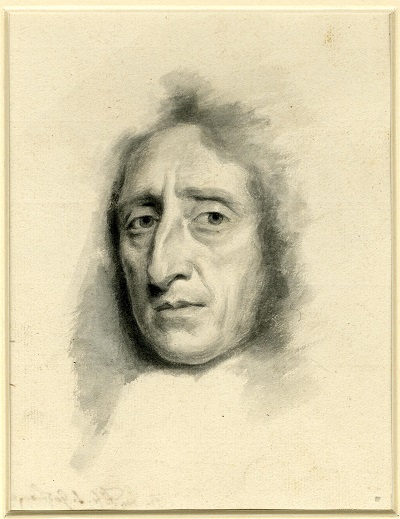


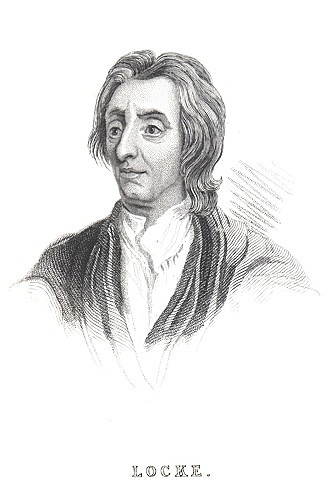
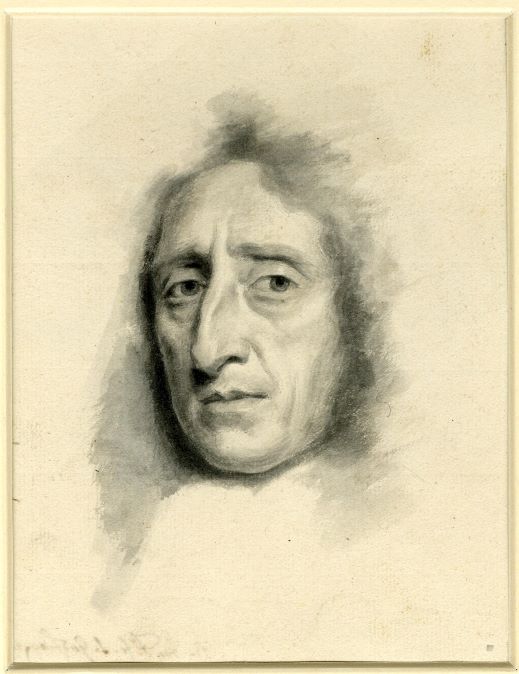
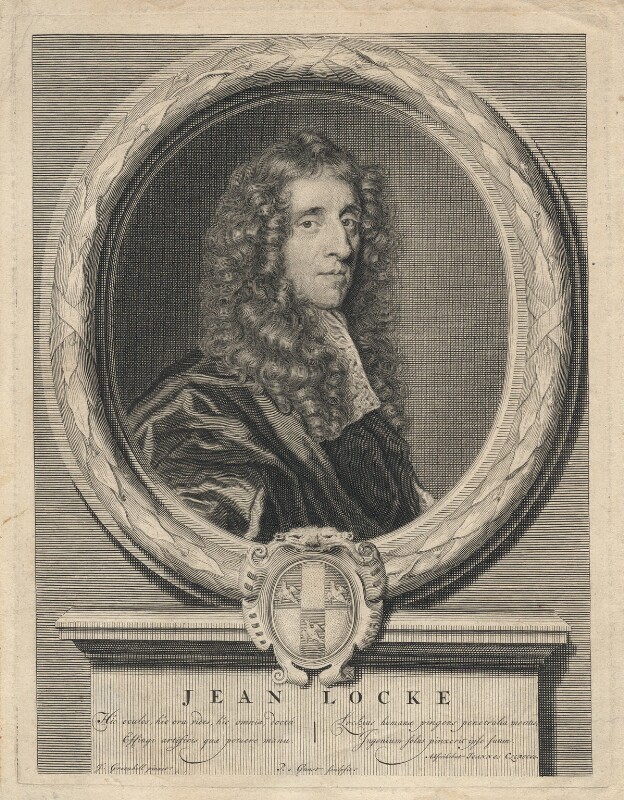

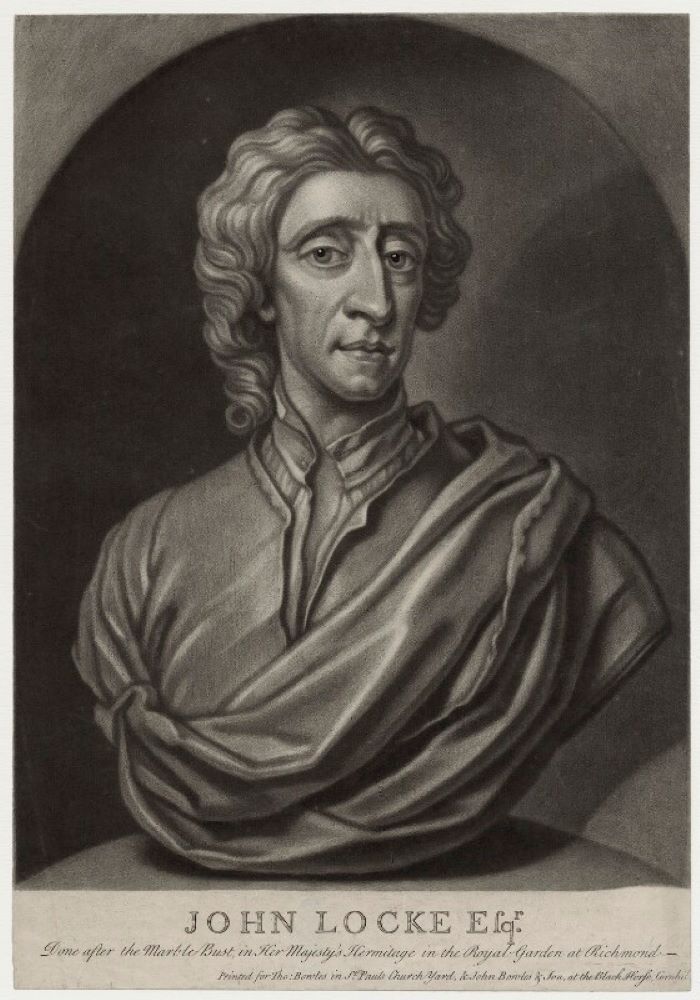 I have no disagreements with Eric’s excellent response to my commentary. I will here take the opportunity to reply, very briefly, to the three questions he raises at the end.
I have no disagreements with Eric’s excellent response to my commentary. I will here take the opportunity to reply, very briefly, to the three questions he raises at the end.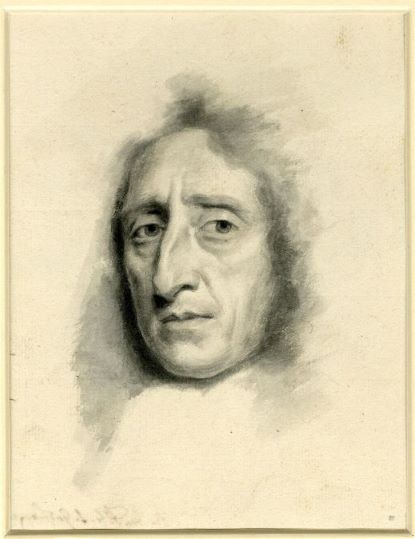 I have already thanked Jan Narveson and Peter Vallentyne for their gracious and thought-provoking comments. I now thank Michael Zuckert, who, as is always the case, reveals to me interesting ways to look at philosophical texts and issues that would otherwise be beyond my ken. It is very gratifying to have such distinguished thinkers as commentators and friends.
I have already thanked Jan Narveson and Peter Vallentyne for their gracious and thought-provoking comments. I now thank Michael Zuckert, who, as is always the case, reveals to me interesting ways to look at philosophical texts and issues that would otherwise be beyond my ken. It is very gratifying to have such distinguished thinkers as commentators and friends. Libertarians need to address, very seriously, the questions raised between Eric Mack and Peter Vallentyne regarding, broadly speaking, the treatment of those on the "bottom" (that is, the bottom of the honest-dollar scale, but not the robbers and wastrels.)
Libertarians need to address, very seriously, the questions raised between Eric Mack and Peter Vallentyne regarding, broadly speaking, the treatment of those on the "bottom" (that is, the bottom of the honest-dollar scale, but not the robbers and wastrels.)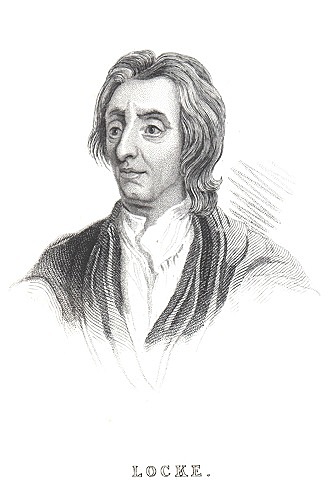 Eric’s generous opening gesture about my comment bringing out insights “beyond his ken” may be a bit of an overstatement, but it does bring out something of a difference between many of us who approach political philosophy from within political science and those, like Eric, who do so from within the discipline of philosophy. I suppose there are many ways to describe the difference but one way is to note what Eric’s comment directly points to—readers like me are more emphatically concerned with the text of the philosophers than readers like Eric. He is directly concerned with the arguments and tends to see them in an acontextual and ahistorical manner. We tend to be concerned more with the text as text and to be attentive to the place of arguments within texts and within history. Thus in my original post I was trying to solve a puzzle about Locke’s organization and order of argument. But in doing so, I believe, some substantive points of interest emerged that do not nullify the excellent interpretation that Eric developed but give some different emphases to Locke’s property doctrine. Although the differences between us are slight I think they do mostly revolve around this difference in the way we approach philosophers like Locke.
Eric’s generous opening gesture about my comment bringing out insights “beyond his ken” may be a bit of an overstatement, but it does bring out something of a difference between many of us who approach political philosophy from within political science and those, like Eric, who do so from within the discipline of philosophy. I suppose there are many ways to describe the difference but one way is to note what Eric’s comment directly points to—readers like me are more emphatically concerned with the text of the philosophers than readers like Eric. He is directly concerned with the arguments and tends to see them in an acontextual and ahistorical manner. We tend to be concerned more with the text as text and to be attentive to the place of arguments within texts and within history. Thus in my original post I was trying to solve a puzzle about Locke’s organization and order of argument. But in doing so, I believe, some substantive points of interest emerged that do not nullify the excellent interpretation that Eric developed but give some different emphases to Locke’s property doctrine. Although the differences between us are slight I think they do mostly revolve around this difference in the way we approach philosophers like Locke.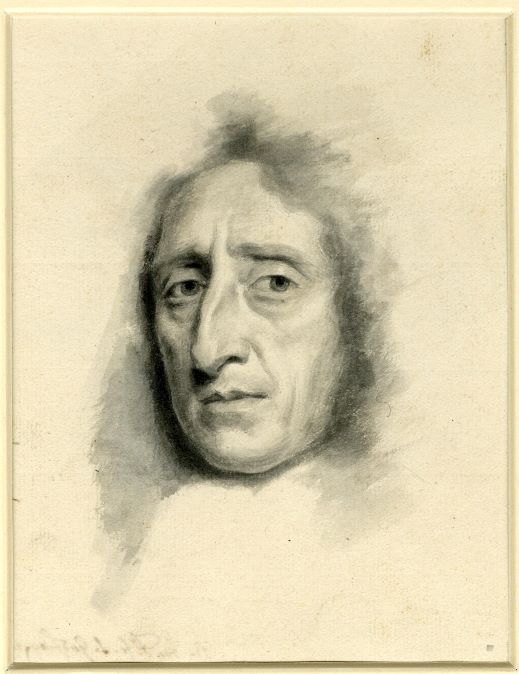

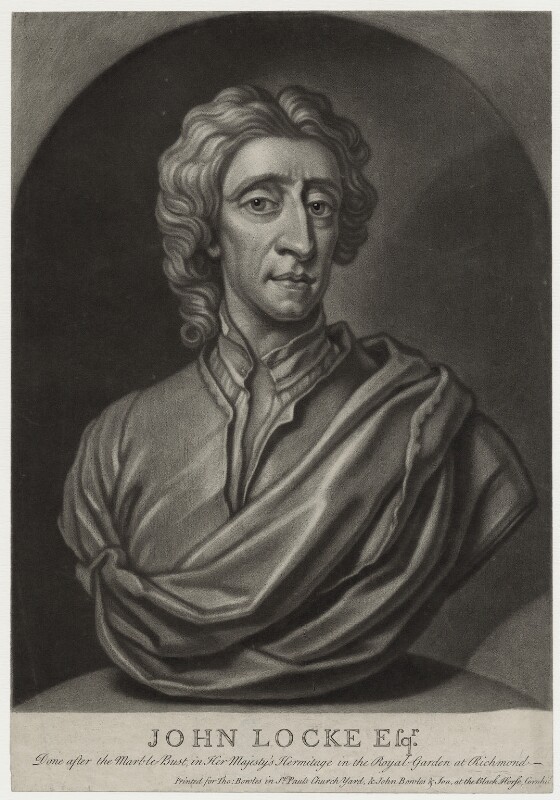

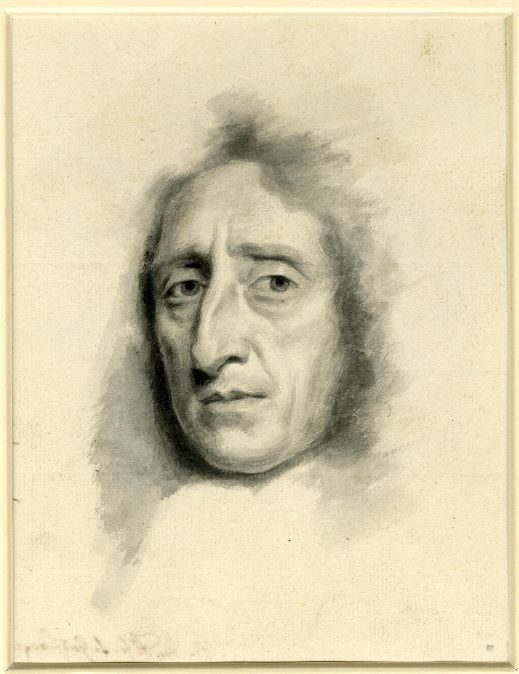
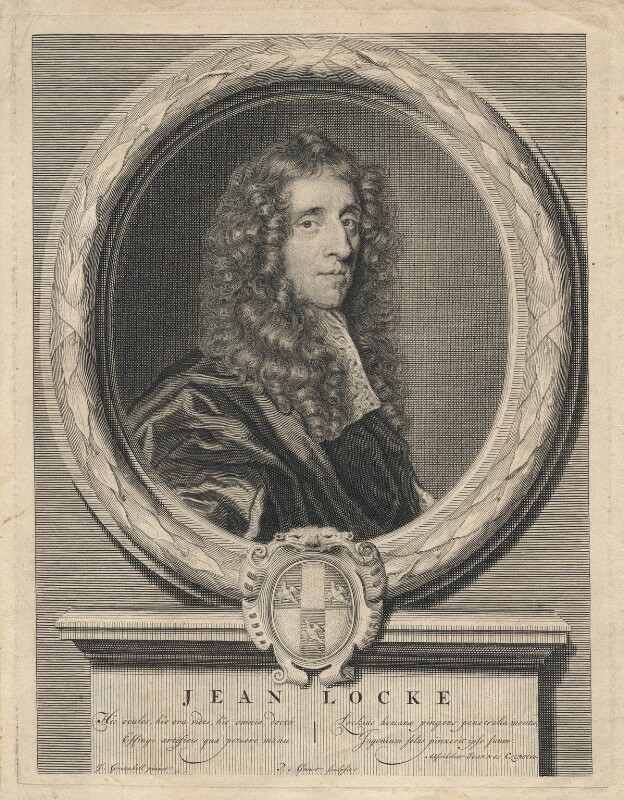
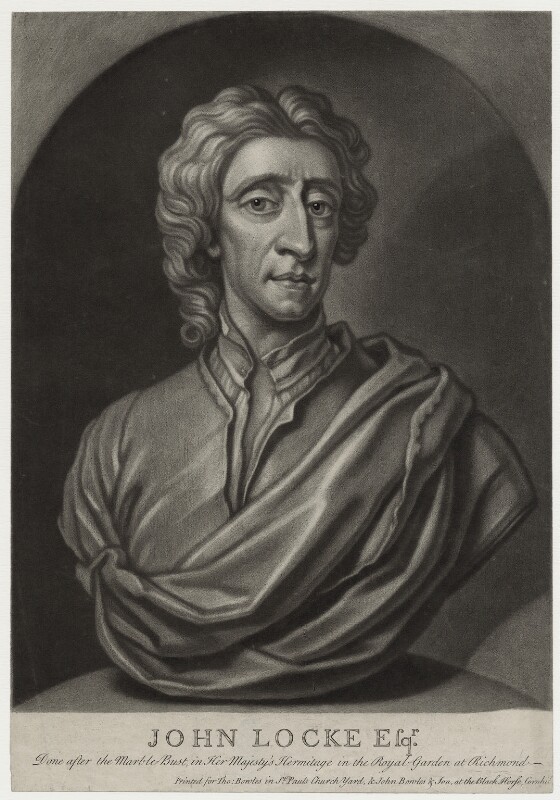
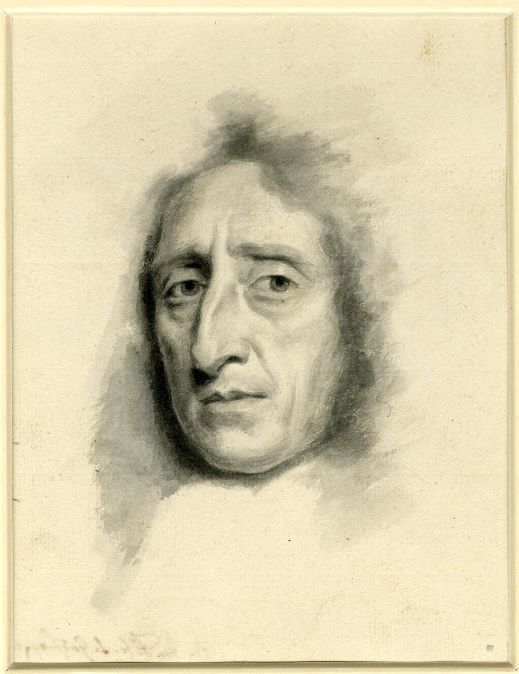

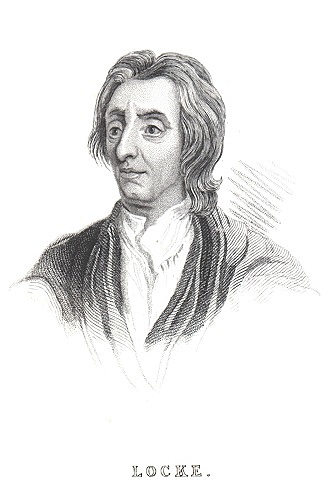
 As I have been at pains to point out, "self-ownership" is not a basis of libertarianism. It simply is one of the several ways of stating it, and nothing else. Since Hobbes is a libertarian in moral principle -- his First Law of Nature is, precisely, the nonaggression principle, as his deductions from it make clear, tabling, as usual, the strictly political arguments -- he does "arrive at" the self-ownership in question, though he doesn't call it that.
As I have been at pains to point out, "self-ownership" is not a basis of libertarianism. It simply is one of the several ways of stating it, and nothing else. Since Hobbes is a libertarian in moral principle -- his First Law of Nature is, precisely, the nonaggression principle, as his deductions from it make clear, tabling, as usual, the strictly political arguments -- he does "arrive at" the self-ownership in question, though he doesn't call it that.